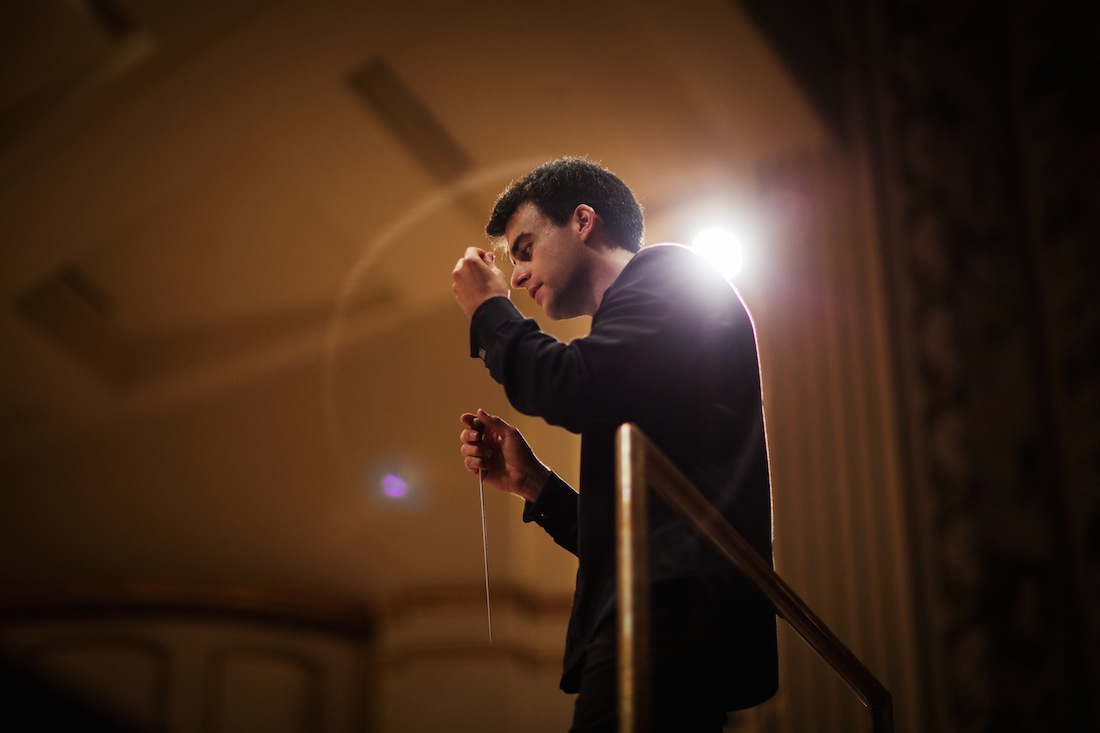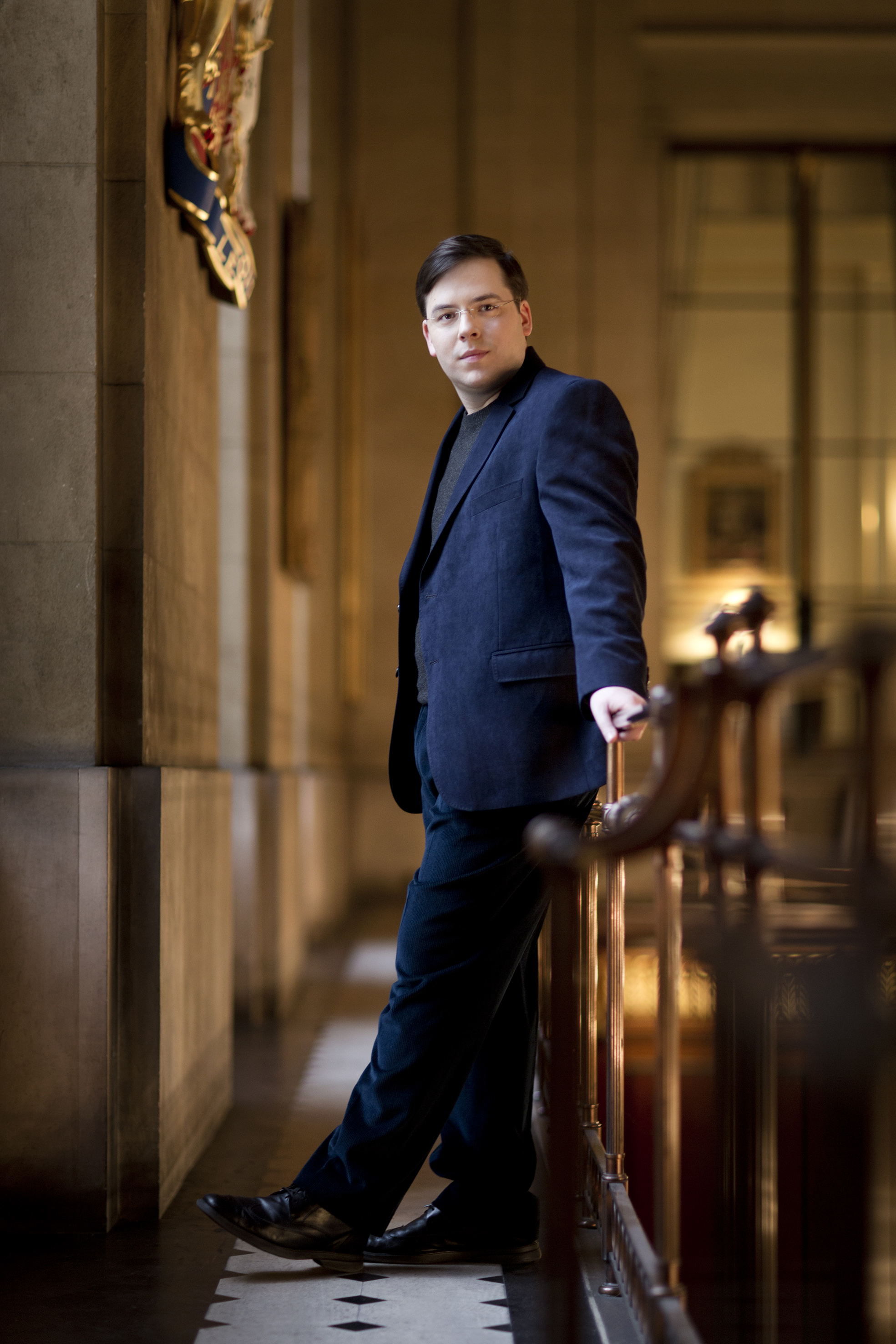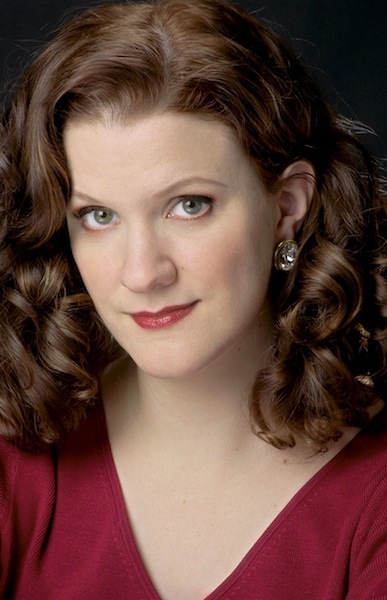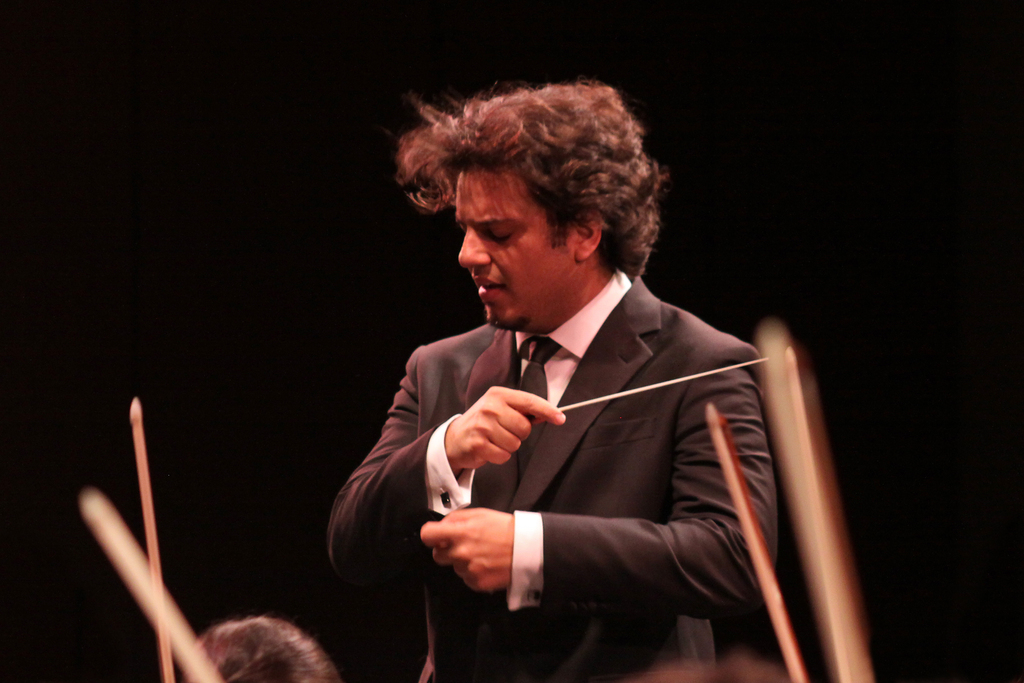
Vladimir Kulenovic walked through pools of fluorescent lights, scanning the dark shadows backstage. His pace was hurried, but light and relaxed as he searched for his baton after a guest appearance at the Chicago Symphony Orchestra in late March. He stopped a man dressed in dark colors who was changing the stage over for the next performance. The man hadn’t seen the baton, but stopped what he was doing to find the maestro’s instrument.
The baton had slipped from Kulenovic’s radar after a children’s performance at the Chicago Symphony Orchestra. Kulenovic had delighted children and parents alike by breaking down works by Mozart, Stravinsky and Saint Saëns, explaining the music in its most raw elements – Tempo, rhythm and instrumentation among them. Afterward, a throng of kids gathered at the edge of the stage, all wanting a picture, an autograph and a moment with the Serbian conductor. While he gregariously received his fans, the stage crew had begun clearing the stage, including the conductor’s podium and Kulenovic’s baton.
He was all smiles as he stepped back out onto the almost-bare stage and apologized for interrupting another stagehand’s work. This crewmember had seen the baton, but didn’t know where it had gone. He told Kulenovic that they’d bring it down to his dressing room as soon as they found it. So it was backstage again, winding through the corridors littered with music stands and cords. He trotted down a flight of stairs that lead to the greenroom. After a brief conversation with a fawning member of the orchestra, Kulenovic found his baton waiting for him atop a stack of scores. He sighed, relieved
***
Vladimir Kulenovic has been waving a baton since he was three years old.
The story, as his mother tells it, is that young Vladimir was watching his father, a composer and conductor, rehearse Igor Stravinsky’s 1910 ballet The Firebird, to a vinyl recording in their living room in Belgrade. He couldn’t rehearse with a live orchestra, because artistic endeavors had been severely limited by the Communist government. The senior Kulenovic set his baton on the coffee table and took a break.
Young Vladimir picked up the baton and began mimicking his father’s movements. And his fascination with The Firebird began.
“Now I know a little bit better what I’m doing as a conductor,” Kulenovic laughs at his origin story. “But I’m still happy to keep that same type of curiosity that led me to The Firebird in the first place.”
***
As Vladimir stepped onto the podium before the Chicago Symphony Orchestra decades later, The Firebird emerged from his memory and informed his direction of the piece. He’d conducted it dozens of times with other ensembles, in front of other crowds since that whimsical day in his youth, when he had no live orchestra, an audience of just his mother. He wouldn’t even see a live orchestra perform until he was a teenager. But that didn’t stop Kulenovic from studying his father’s scores and leading imaginary players in works from that old record player.

In Chicago, his muscles tensed as he lifted his arms. With a sharp downward crack, The Firebird sprang to life at Kulenovic’s request once again. For him, repetition isn’t redundant, it’s a chance for rediscovery.
“Every time you think about a piece like The Firebird, with every thought, you learn something.” Kulenovic says he relishes that discovery and wants to share the joy it brings him. That’s why he does events such as the Chicago Symphony Orchestra’s school concert series.
“Music is this wonderful kind of disease that we spread. And it’s the only disease that perpetuates life – that actually helps it continue and gives it a pretty good reason for always prevailing.” While Kulenovic’s definition may not align with the Centers for Disease Control, it is a comforting metaphor.
***
Kulenovic’s developed this philosophy throughout his training and early career. Starting at The Juilliard School in 2009, all the way to his current posts. He is concurrently serving as the music director of the Lake Forest Symphony in Chicago’s north suburbs, the resident conductor of the Belgrade Philharmonic Orchestra in his native Serbia and the associate conductor of the Utah Symphony | Utah Opera in Salt Lake City.
His conducting education follows a rich lineage of prominent music leaders. Kulenovic can trace his conducting heritage back three generations to Zoltan Kodaly, through Antal Dorati and his instructor James DePriest. He remembers his first meeting with DePriest at Juilliard.
“Our first lesson was actually a conversation.” Kulenovic says that meeting set the foundation of his conducting philosophy. “We as conductors, and our careers as our vehicles, are merely bricks. And what this means is that we have one job to do, and that is to keep this brick in the best possible shape that it can be.”
Kulenovic moved his hands in front of him, bringing this philosophical brick to life in front of him as he extended the metaphor to describe the orchestra as “people functioning as one, much like bricks that function in a structure”
He says that this way of thinking keeps him humble in a very competitive world.

“The more that you develop yourself, the more you understand that you do so, not for the betterment of yourself, but for the betterment of the greater good.”
It’s not often that a person contemplates their place in the world during their day job. But then again, not many get to evoke such strong emotions through music every day.
Kulenovic says the brick can be applied to all of humanity. “Just like many notes functioning together, just like many bricks supporting each other, us as people in the world of music and the real world have that same divine purpose – that we follow and help each other.”
As if sensing that he was steering the conversation into a heavy place, he clarified that this philosophy was not purely his own.
“I was very, very fortunate to have this brick fall on my head.” The analogy took on a whimsical, Merry Melodies feeling. “I hope that with my work, I will give these bricks and hit as many heads as it is possible in the world and make it a better place.”
At the pace that Kulenovic is sharing his gift with the world, it’s not hard to imagine inspirational bricks raining down wherever he goes.
***
Walking out of the Symphony Center in Chicago, patrons stop Kulenovic a few more times. He has two more performances that weekend at the Lake Forest Symphony. But he doesn’t use his busy schedule to sidestep his young fans. He greets them graciously, as if they’re the only people in the world.



